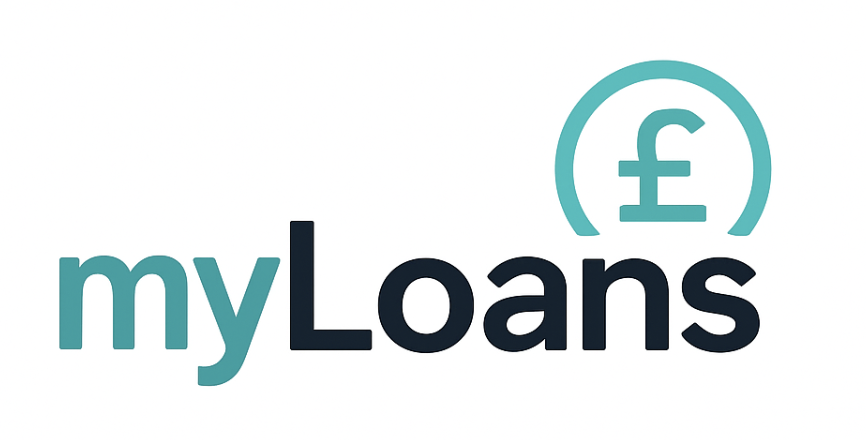Table of Contents
How Guarantor Loans Show on Credit Reports
When you apply for a guarantor loan, both the borrower and guarantor undergo credit checks. This ensures the lender can assess affordability and risk.
-
Borrower: The loan is recorded directly on your credit file, including the balance, repayment history, and status (active/settled).
-
Guarantor: The loan itself doesn’t appear as an active credit account, but lenders record that you’ve acted as a guarantor. This can show up during future applications, as it represents a potential financial liability.
Example: If a borrower takes out a £5,000 guarantor loan, this debt is visible on the borrower’s credit report.
For the guarantor, it won’t be listed as a personal loan, but other lenders will see that you’ve guaranteed a third-party credit agreement.
Impact on the Borrower’s Credit Score
For borrowers, guarantor loans can be a double-edged sword:
-
Positive impact:
-
Making repayments on time builds a history of reliability.
-
Successfully completing the loan shows lenders you can handle instalment borrowing.
-
Over time, this may improve your eligibility for mainstream personal loans, credit cards, or even mortgages.
-
-
Negative impact:
-
Missed or late repayments are reported to credit agencies (Experian, Equifax, TransUnion).
-
Defaults remain visible for six years, even if the loan is later settled.
-
Too many credit applications in a short period may lower your score.
-
Impact on the Guarantor’s Credit Score
For guarantors, the impact is different but just as important:
-
No immediate effect: As long as the borrower makes repayments, your credit report is unaffected.
-
Potential negative effect: If the borrower misses payments and you are required to cover them, this repayment record is logged against your own file.
-
Future borrowing capacity: Even if you never make a repayment, acting as a guarantor can reduce how much lenders are willing to lend you in future, since they must consider your potential liability.
Example: If your friend defaults on a £10,000 loan and you cover repayments, those transactions are treated as if you had borrowed the money yourself. If you also miss payments, your credit score could drop significantly.
How Timely Repayments Can Improve Credit
One of the main advantages of guarantor loans is that they can act as a stepping stone for people with bad credit:
-
On-time monthly payments show positive behaviour to credit agencies.
-
Settling the loan early (if allowed without penalties) can boost creditworthiness.
-
Moving from “bad credit” to “fair credit” can save thousands on future borrowing costs.
In some cases, borrowers who manage guarantor loans successfully find themselves eligible for lower APR personal loans within two years.
What Happens If Payments Are Missed?
Missed payments trigger a clear process:
-
The lender contacts the borrower first.
-
If payment isn’t made, the guarantor becomes legally responsible for covering the instalment.
-
If the guarantor pays on time, their credit remains intact, but the borrower’s file shows a missed payment.
-
If neither pays, both parties face negative entries on their credit files.
-
Continued arrears may result in a default or County Court Judgment (CCJ), both highly damaging to credit scores.
Case study: The Financial Ombudsman has handled numerous complaints from guarantors who didn’t fully understand their liability. It’s essential that both parties know missed payments can damage both credit files.
How to Protect Your Credit Record
Borrowers and guarantors can take practical steps to safeguard their credit:
-
Budget carefully: Only borrow what you can afford to repay each month.
-
Set up a direct debit: Prevents accidental missed payments.
-
Communicate: Borrower and guarantor should stay in touch about payment schedules.
-
Review your credit file: Check for errors with Experian, Equifax, or TransUnion.
-
Build a buffer: Keep an emergency fund in case income drops unexpectedly.
Alternatives If You’re Concerned About Credit Impact
If you’re worried about the risks to your credit score, consider:
-
Credit union loans: Community-based, often lower APR and more flexible.
-
Credit-builder cards: Small credit limits designed to help rebuild your score.
-
Secured loans: Less risky for guarantors but require assets.
-
Family lending: Informal, interest-free agreements outside the credit system.
-
Debt management plans: If borrowing is for consolidation, structured repayment plans may be safer.
Final Thoughts
Guarantor loans absolutely affect credit scores — positively if managed well, negatively if repayments are missed. For borrowers, they can be a pathway to rebuilding financial credibility. For guarantors, the main risk is being left responsible for repayments that could harm their own credit history.
Before signing up, compare lenders, check FCA authorisation, and make sure both borrower and guarantor fully understand the obligations. With careful planning and consistent repayments, a guarantor loan can be more than just a financial safety net — it can be the start of rebuilding a healthier credit profile.
For more insights, explore our Guarantor Loans UK Guide and our article on Eligibility & Application Process.
FAQ: Do Guarantor Loans Affect Credit Score?
1. Does being a guarantor show on my credit report?
No, guarantor loans do not usually appear as active accounts on a guarantor’s credit report. However, lenders can see that you’ve acted as a guarantor, and if you are required to make payments, these will be recorded on your credit file.
2. Can guarantor loans improve my credit score?
Yes, guarantor loans can improve a borrower’s credit score if all repayments are made on time. A consistent repayment history demonstrates financial reliability and can help you qualify for better credit products in the future.
3. What happens to my guarantor’s credit score if I miss payments?
If the borrower misses payments, the guarantor becomes responsible for covering them. If the guarantor pays on time, their credit score is unaffected. However, if they also miss payments, negative entries will be recorded on their credit file.
4. Does applying for a guarantor loan affect my credit score?
Yes. When you apply for a guarantor loan, the lender performs a credit check. This may cause a small, temporary dip in your credit score, especially if you’ve applied for multiple loans in a short period.
5. How long do missed guarantor loan payments stay on a credit file?
Missed or defaulted guarantor loan payments remain on both the borrower’s and guarantor’s credit reports for up to six years. This can significantly impact future borrowing opportunities.
How Much Can You Borrow with a Guarantor Loan?
If you’re considering a guarantor loan, one of the first questions you’ll likely ask is: “How much can I actually borrow?” The answer isn’t the same for everyone. While most guarantor lenders in the UK advertise loans between £1,000 and £15,000, the amount you’re...
How to Apply for a Guarantor Loan in the UK: Step-by-Step Guide
Guarantor loans are designed for borrowers who may struggle to get approved for credit due to poor or limited credit history. If you’re ready to move forward, you may be wondering: how do I apply for a guarantor loan? This guide walks you through the full application...
Loan Guarantors Explained: Who Can Be a Guarantor
When applying for a loan with poor credit, lenders may ask for a loan guarantor. But what does that mean, who can act as a guarantor, and what responsibilities are involved? In this guide, we explain the role of guarantors in the UK, how they affect the loan...
Direct Lender Bad Credit Loans: With and Without Guarantor
When you’re searching for a loan with poor credit, you’ll often come across two terms: direct lenders and guarantor loans. But what does “direct lender” really mean, and how do loans with or without a guarantor compare? This guide explains everything you need to know...
What Happens If You Can’t Pay a Guarantor Loan in the UK?
Guarantor loans can provide vital access to credit for borrowers who have been turned down elsewhere due to bad credit or limited credit history. But what happens if you can’t pay a guarantor loan? The consequences can be serious, affecting both the borrower and the...
Guarantor Loans: Eligibility and Application Process
A Complete Guide to Guarantor Loans in the UKFinding affordable credit when you have a limited or poor credit history can be challenging. This is where guarantor loans come in. These loans allow you to borrow money with the help of a friend or family member who agrees...








